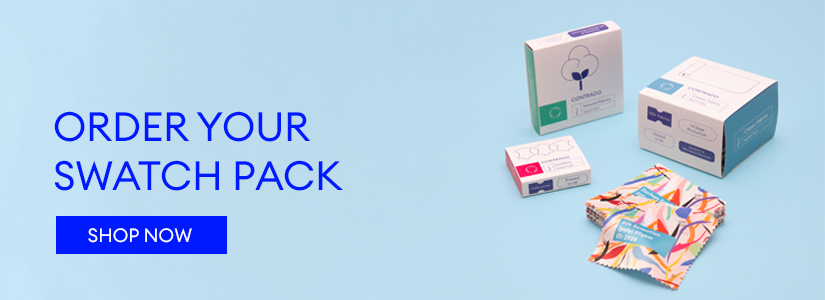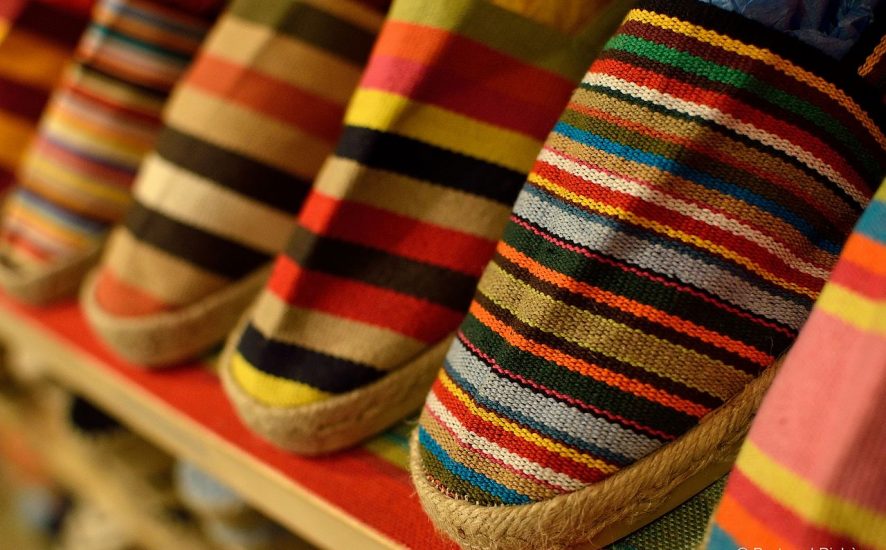Most fashionistas have probably heard the word “espadrilles” plenty of times. But what is the first thing you think of when you hear “espadrilles”? Most commonly, we get the answer ‘a woman’s heel made with a woven or braided sole’. Yes, this is a somewhat accurate description of a type of espadrille, but not entirely correct.
So if they’re not exactly heels, what are they?
What are Espadrilles?
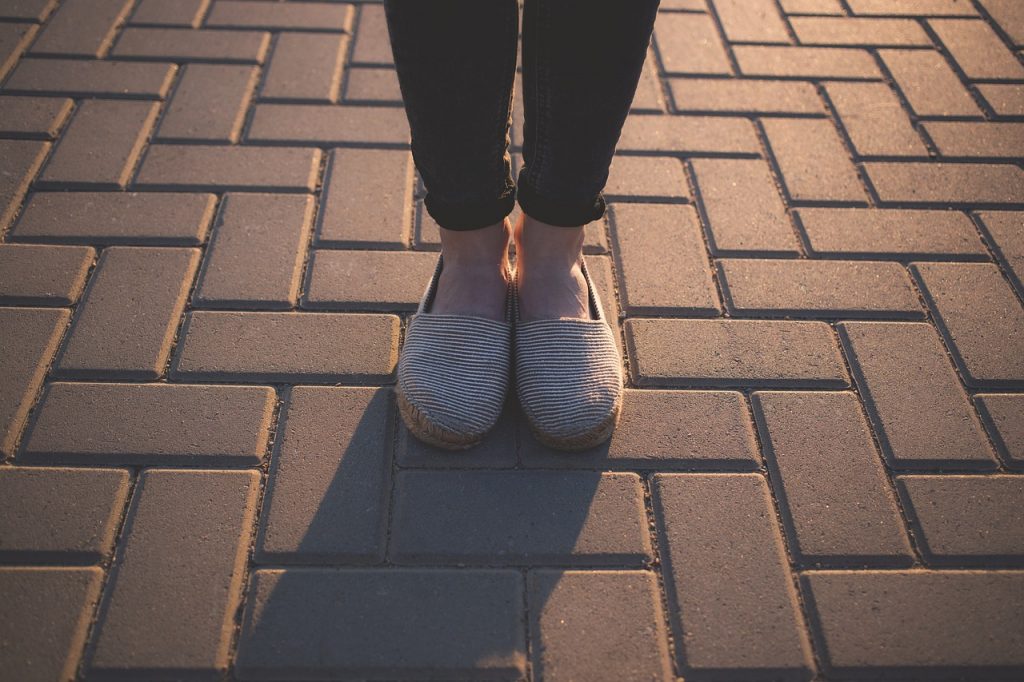
Espadrilles are a type of shoe that has a significantly different sole than most shoes: one made of jute fabric. The jute fabric gives espadrilles their unique look that draws people in for spring and summer looks. The comfort and durability of espadrilles compel people to continue loving and wearing them.
Where did Espadrilles Come From?
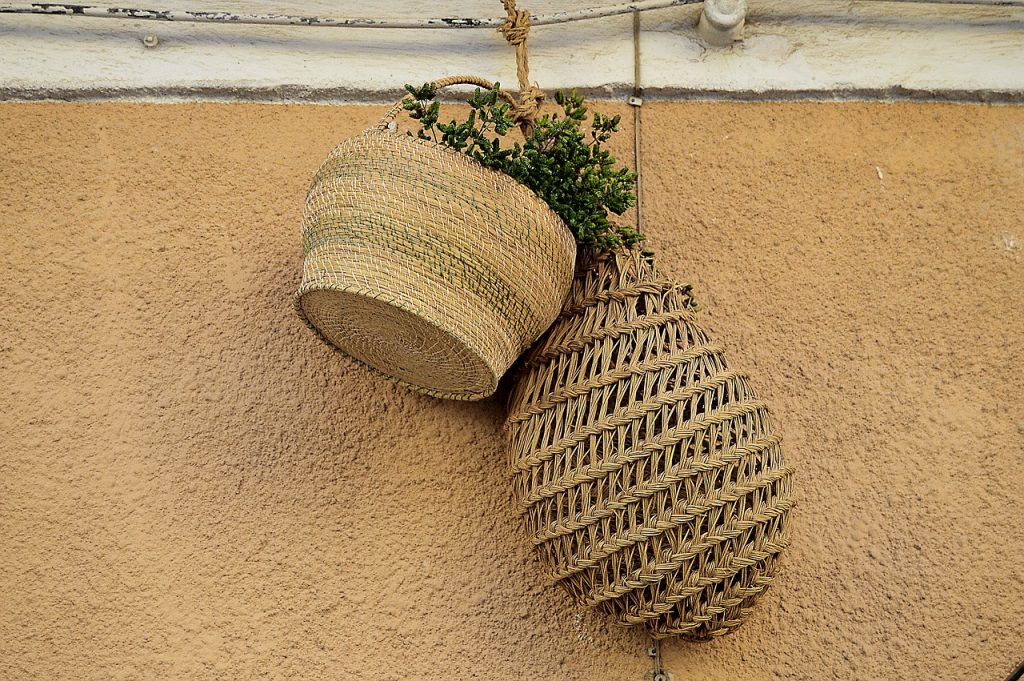
Espadrilles were first created in Europe in the year 1322. Specifically in Spain and France, where the esparto fibre was used to shape the footwear. The esparto fibre is from the Catalan word “espardenyas,” and where the name “espadrille” stems from.
This fibre was created from grasses in southern Europe to make baskets, cords and shoes. These were then sold in the local area. The esparto fibre connects the various parts of the shoe together. It would wrap around the ankle, covering the toes and tying the sections to the sole of the shoe.
The Political Espadrille Movement
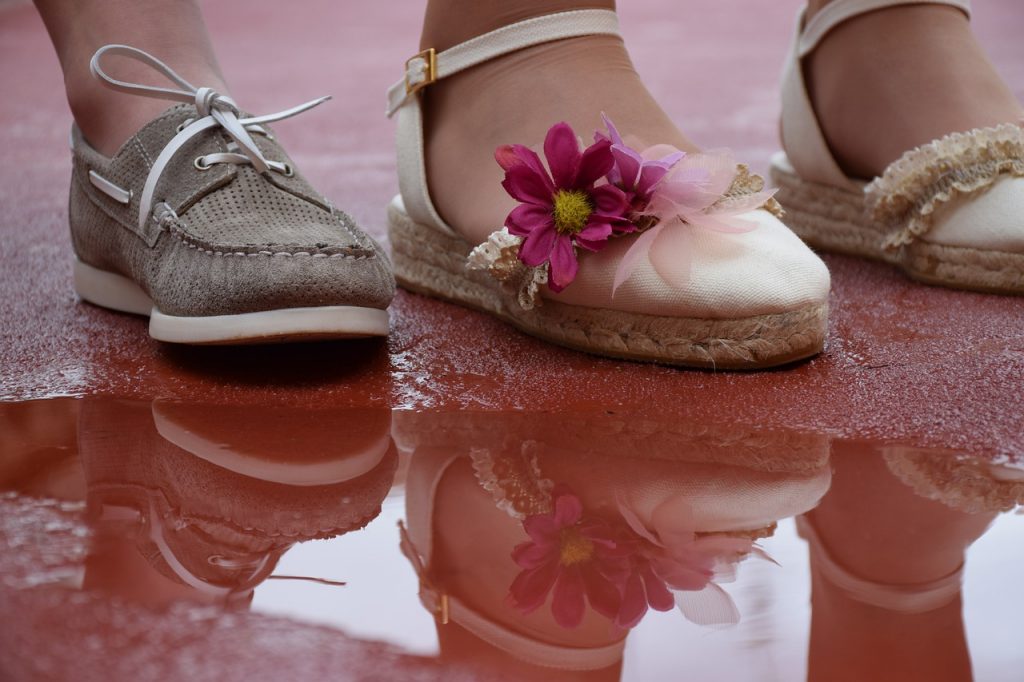
Espadrilles were the common footwear of peasants while the wealthy wore leather and silk made footwear. This signified the class distinction simply by the choice of footwear. Peasants would most commonly wear espadrilles because of their cheap production and cost at the time. They then became fairly popular in the regions of the Basque Country and Catalonia.
Espadrilles became part of a political movement in the 19th century where they signified specific regions during Catalan independence and the Spanish Civil War. Soldiers and other nationalists would wear espadrilles to show support of their region while simultaneously making a fashion statement which they would be unaware would last for years afterwards.
Once they became well known in the European movements and wars, espadrilles started to spread their popularity globally as the diaspora began as well. The espadrille had evolved into footwear with more coverage and fabric rather than the esparto fibre holding everything together. Once America got hold of the espadrille news, the footwear eventually became most known on a wedge heel thanks to Yves Saint Laurent’s collaboration with Isabel Sauras and Lorenzo Castañer.
Nowadays, espadrilles are more associated with its heel form for women but continue to be a unisex footwear option. Worn mainly in the spring and summer, people can enjoy the look and comfortability of the espadrille fabric paired with a range of outfits from casual to formal.
Jute Fibre: Healing the Espadrille Sole
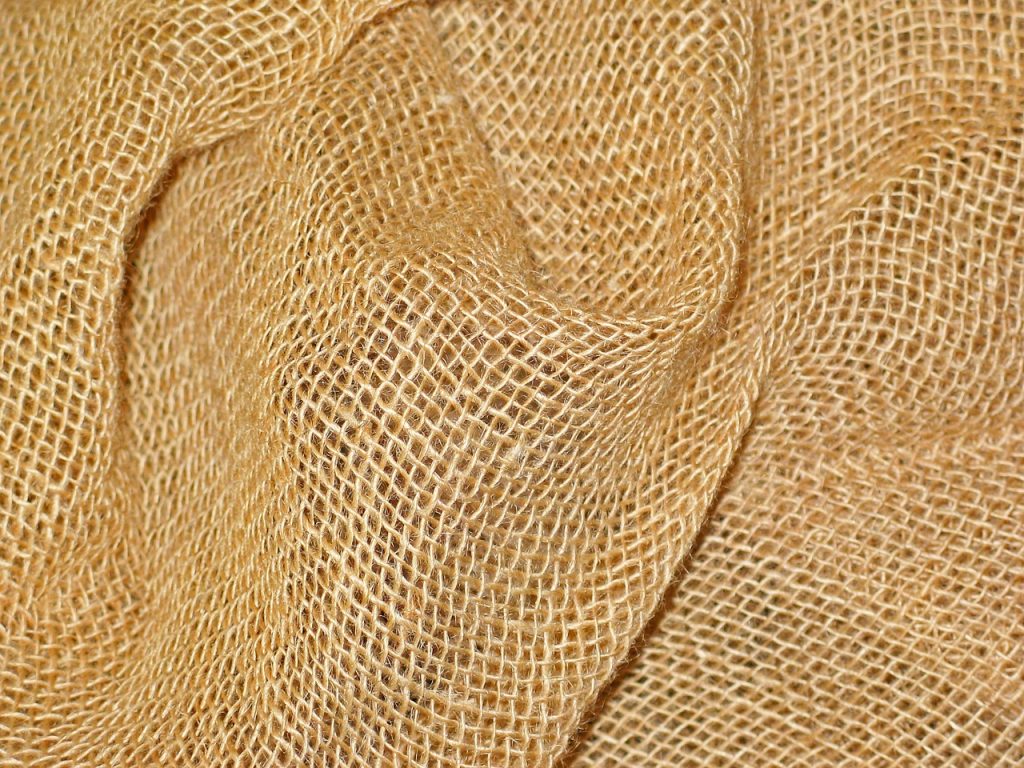
As you now know, traditional espadrilles were made of esparto fibres which come from southern Europe and North Africa. Today, the most popular fabric of choice is jute fibre, which consists of cellulose and lignin. Jute fibre is the next best vegetable fibre after cotton as its long, soft, shiny texture creates versatility that can be used for making twine, rope, matting, cloth and other common items.
The fibre is spun into strong threads, creating the durability of espadrilles. Jute fibre is most commonly used because of its cheap production process, its known strength, and its biodegradable nature.
Along with the sole of the shoe, espadrilles nowadays also consist of a fabric of one’s choice for the upper of the espadrille. Espadrilles are made of various fabrics and fibres and the persistence of its structure will continue to make history as it is one of the many shoes that are naturally long-lasting.
How to Make Espadrilles
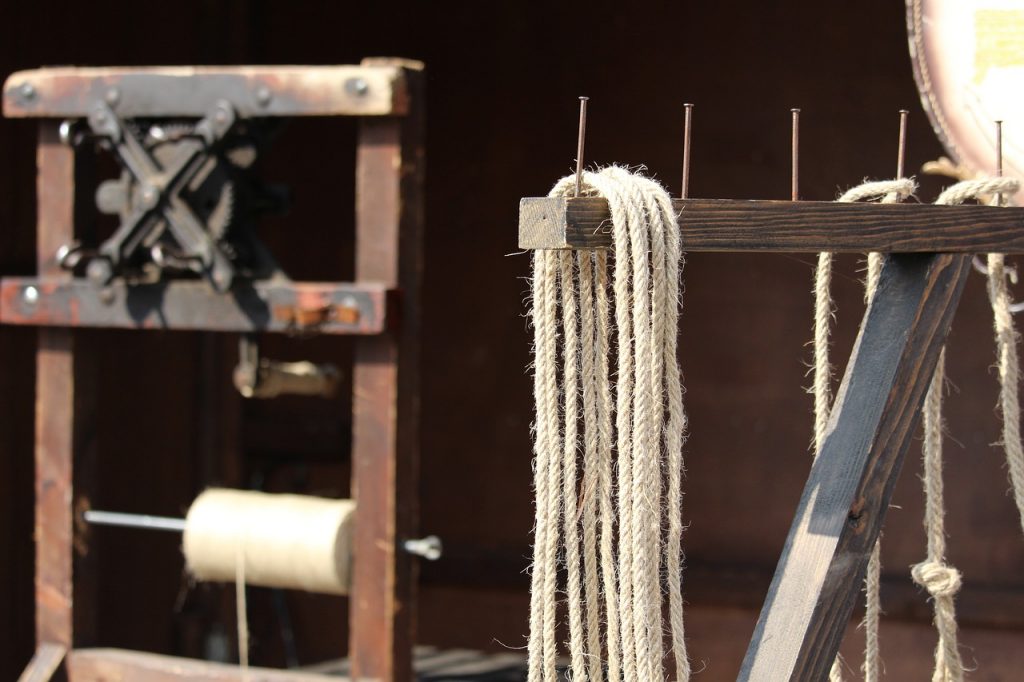
Espadrilles were first created by braiding esparto fibres to create pocket-like enclosures for the ankle and toes. The traditional method is pretty different than the modern method, as the former tends to cover more of the foot with fabric rather than the fibres. The modern method involves cutting various fabrics and stitching them together to create a good-looking shoe.
The first step is to pick a pattern and fabric for the upper of the espadrille, what the bulk of the shoe will present. Once you choose the fabric and pattern, cut the upper of the espadrille and stitch it together. Then, stitch the upper onto the jute fabric sole of the shoe that will hold the patterned fabric of choice.
The woven jute fabric used for the sole of the shoe is sustainable and tough, which helps make the espadrille long-lasting. We make the upper of the shoe from canvas fabric, to provide the best color and print definition. This adds to the sturdiness of the entire espadrille.
Not only are espadrilles comfortable, but they’re also fashionable and can last multiple seasons with the strength of the espadrille fabrics used. People can customise every part of their espadrilles making them extremely unique and exactly how they like them.
Espadrilles: Here to Stay
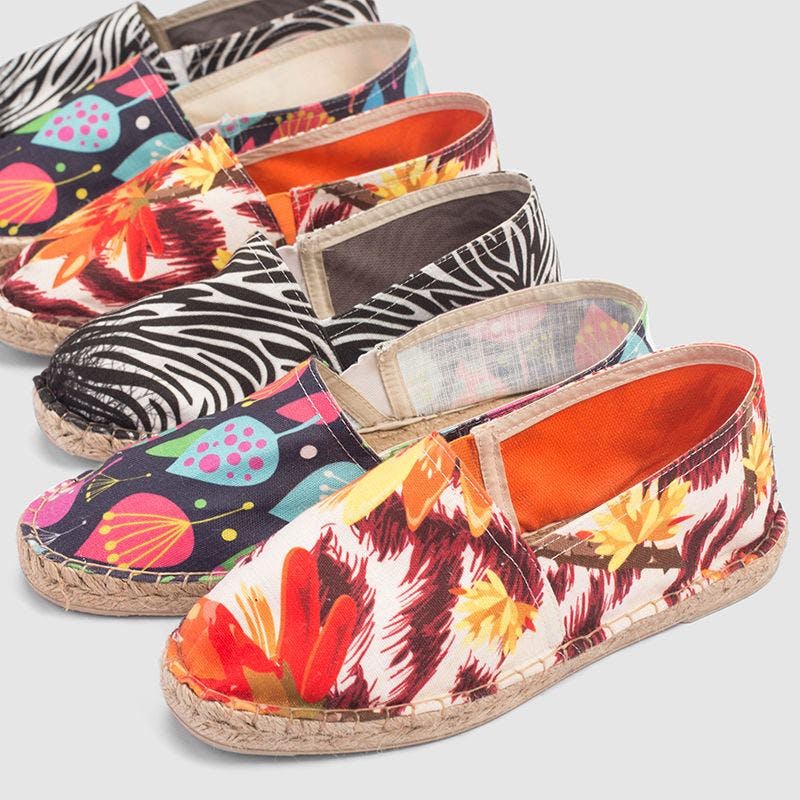
Now you know that these are perhaps the best unisex shoe to buy! Simply click below to start designing your own unique pair of espadrilles!

